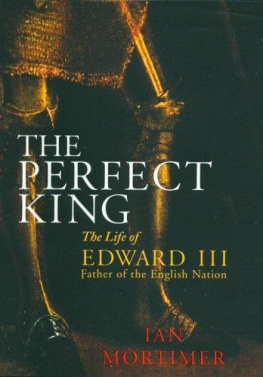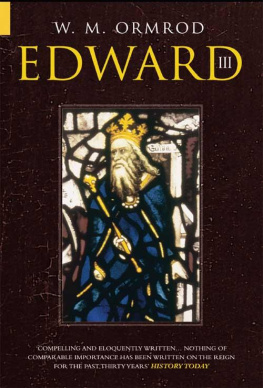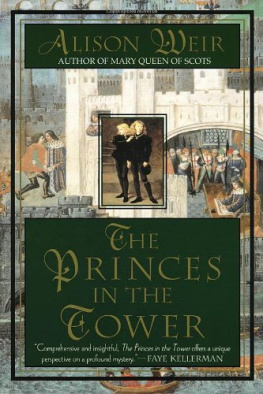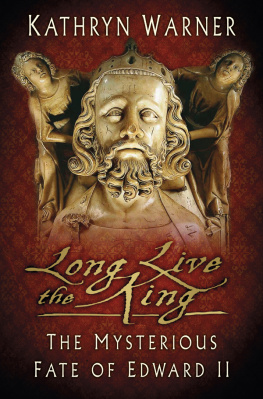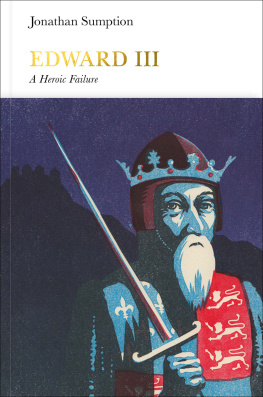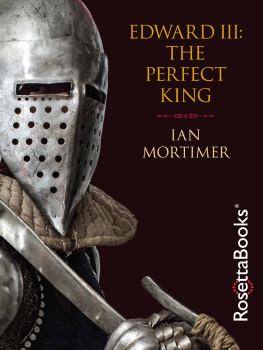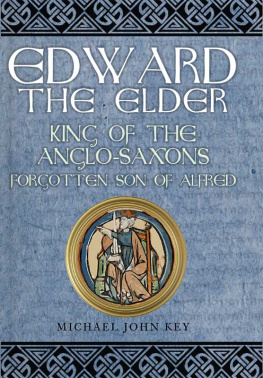THE PERFECT KING
Ian Mortimer has BA and PhD degrees in history from Exeter University and an MA in archive studies from University College London. From 1991 to 2003 he worked in turn for Devon Record Office, Reading University, the Royal Commission on Historical Manuscripts, and Exeter University. He was elected a Fellow of the Royal Historical Society in 1998. In 2003 the first of his medieval biographies, The Greatest Traitor was published by Jonathan Cape. He was awarded the Alexander Prize (2004) by the Royal Historical Society for his work on the social history of medicine. He lives with his wife and three children on the edge of Dartmoor.
'His book favourably reassesses Edward's career and his impact on English history, and refutes the calumnies of Victorian historians, who were apt to decry him as a tax-hungry warmonger and focus on the humiliations of his last years'
Alison Weir, Daily Mail
'This is a story which - for its boldness of interpretation, success of evoking the vanished medieval world, and sheer narrative elan - deserves to be widely read' John Adamson, Sunday Times
'The pace, commitment, and gusto of his writing... give his narrative real momentum. He has a talent for summoning up the scenes of Edward's military triumphs with immediacy and verve, and he relishes the king's role not only as a diplomat and strategist, but also as an intelligent patron of the arts, architecture and technological innovation' Helen Castor, Sunday Telegraph
'Mortimer argues that [Edward III] was a great man and a great king. It is hard to disagree' Jane Stevenson, Scotland on Sunday
'Mortimer... writes with enthusiasm and real knowledge ... He can write an excellent narrative account of a battle' Richard Barber, Literary Review
IAN MORTIMER
The Perfect King
The Life of Edward III, Father of the English Nation
VINTAGE BOOKS
London
Published by Vintage 2008
46 8 10 9 75
Copyright Ian Mortimer 2006
Ian Mortimer has asserted his right under the Copyright, Designs and Patents Act 1988 to be identified as the author of this work
This book is sold subject to the condition that it shall not, by way of trade or otherwise, be lent, resold, hired out, or otherwise circulated without the publisher's prior consent in any form of binding or cover other than that in which it is published and without a similar condition, including this condition, being imposed on the subsequent purchaser
This is a work of non-fiction. The author has stated to the publishers that the contents of this book are true.
First published in Great Britain in 2006 by Jonathan Cape
Vintage
Random House, 20 Vauxhall Bridge Road, London SW1V2SA
www.vintage-books.co.uk
Addresses for companies within The Random House Group Limited can be found at: www.randomhouse.co.uk/offices.htm
The Random House Group Limited Reg. No. 954009
A CIP catalogue record for this book is available from the British Library
ISBN 9780099527091
The Random House Group Limited supports The Forest Stewardship
Council (FSC), the leading international forest certification organisation. All our titles that are printed on Greenpeace approved FSC certified paper carry the FSC logo. Our paper procurement policy can be found at: www.rbooks.co.uk/environment
Printed and bound in Great Britain by CPI Cox & Wyman, Reading RG1 8EX
This book is dedicated to my wife, Sophie, who has been so supportive during the months of frustration, stress, worry and euphoria which inevitably occur when trying to encapsulate a life as rich and complicated as Edward Ill's. She has sat outside the walls of Calais, as it were, and watched Sir Walter Manny take on whole armies armed only with a toothpick. The completion of this book is something in which she too can take pride.
CONTENTS Author's Note xvii Acknowledgements xix Introduction i
Childhood
A Treasonable Youth
The Devil for Wrath
Absolute Royalty
Warrior of God
The Vow of the Heron
Sluys and Tournai
Chivalry and Shame
The Advent of the Golden Age 202 10 Edward the Conqueror 223 11 An Unassailable Enemy
At the Court of the Sun King
Lawmaker
The Pride of England
Outliving Victory
A Tattered Coat upon a Stick
Edward the Gracious
Appendices:
Philippa of Hainault's Date of Birth
The Fake Death of Edward II
A Note on the Later Life of Edward II
Royal Charter Witnesses in Regnal Years 4-5
The Intended Destination of the 1346 Invasion
The Date of the Foundation of the Order
of the Garter
Edward Ill's Physicians and Surgeons
The Descendants of Edward EI
Notes Full tides of works appearing in the notes Genealogical Tables:
The English Royal Family before 1330
The English Royal Family after 1330
The French Royal Family
Index
AUTHOR'S NOTE
This book deliberately employs the ambiguous use of the term Gascony to describe the English-ruled territory in the south-west of France, in keeping with most books on the fourteenth century. The duchy of Aquitaine as inherited from Eleanor of Aquitaine - was far more extensive than Gascony but there were times when English authority was squeezed and the two were practically synonymous. It would be convenient to use just the one word to describe the duchy and its extensions, and there is one - Guienne - but it is very rarely used, even by scholars, and would look very odd in a biography. So, in order to avoid the awkward adjective Aquitainian' and the even more awkward 'Guiennese', two terms have been used: Aquitaine for the tide of the duchy and (later) principality, and 'Gascony' and 'Gascon' when referring to the region generally.
Most English surnames which include 'de' in the original source have been simplified, with the silent loss of the 'de'. Where it remained traditionally incorporated in the surname (e.g. de la Pole, de la Beche, de la Ware) these have been retained. 'De' has generally been retained in French names (e.g. de Harcourt, de Montfort, de Blois). With Italian names, 'de' has normally been retained (e.g. del Caretto, de Controne, de Sarzana) but where it is customary not to keep it (e.g. Fieschi, Forzetti) it has been dropped.
With regard to international currency, the gold florin fluctuated greatly over the period covered by this book. According to the Handbook of Medieval Exchange, it was worth as little as 2s 8d in 1346 and as much as 4s in 1332 and 1338. It was also worth different amounts in different places at the same time, and could even be worth different amounts in the same place at the same time. Very roughly speaking, one florin was usually worth slightly more than 3s prior to 1340 and slightly less than 3s thereafter. Many other writers use the rate of florin = 3s 4d, as this allows the easy conversion of florins = In this book this rate is used up to 1340 and the slightly more accurate rate of florin = 3s is used after that year, which implies a conversion of 6.67 florins = The other unit of international accounting used in this book, the mark, was a constant 13s 4d.
ACKNOWLEDGEMENTS
It is impossible to write a book like this without incurring a number of debts of gratitude. I hope that readers will not begrudge me here mentioning the names of my agent, James Gill, and my editors, Will Sulkin and Jorg Hensgen. I am also very grateful to two scholars for their assistance: Dr Paul Dryburgh, who surveyed many of the wardrobe accounts for me in the research stages, and Professor Mark Ormrod of the University of York, who provided me with many valuable hints, photocopies, offprints and references when the book was in a draft form. I would also like to thank staff at the National Archives, the British Library, Exeter University Library, Gloucestershire Record Office, the National Portrait Gallery Archive, Warwickshire County Record Office and Westminster Abbey Library. I am grateful to all those who provided me with accommodation when undertaking research, namely: Zak Reddan and Mary Fawcett, Jay Hammond, Robert and Julie Mortimer, Susannah Davis and Anya Francis. I acknowledge the support of the K Blundell Trust, administered by the Society of Authors, who gave me a grant in the course of writing this book. Finally, I want to say a huge thank you to my family - Sophie, especially, but also Alexander, Elizabeth, and Oliver - for keeping me going.
Next page
